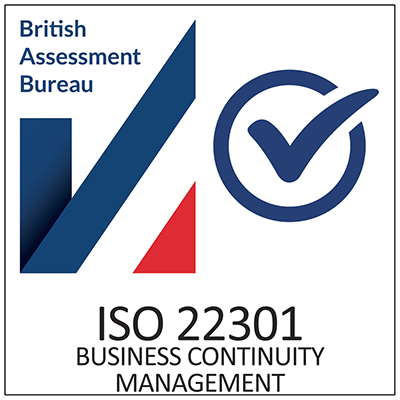A popular destination for both tourists and professionals, over 19 million people visited Singapore in 2019. Known as the ‘Lion City’, Singapore has built a reputation as one of the world’s safest and cleanest cities. Singapore hasn’t gained these titles by chance; this city-state has carefully constructed its legal system to succeed in its pursuit of cleanliness and become universally recognised for its spotless streets.
Planning a trip to the Lion City and want to ensure it goes smoothly? Once you have booked your corporate serviced apartment in Singapore, read this guide on 12 unique laws in Singapore you should know before you visit.

1. No Smoking in Public
Smoking indoors is largely prohibited in Singapore and is also banned in certain outdoor spaces as well – check out this guide for a full list of smoking and no-smoking permitted areas.
Fines of $200 are given to those found smoking in prohibited areas, and this can increase to $1,000 if the case gets taken to court.
2. E-Cigarettes are Prohibited
The Tobacco (Control of Advertisements and Sale) Act prohibits the importation, distribution, sale, and possession of imitation tobacco products (including e-cigarettes).
If you are found in breach of these regulations, you will be found guilty of an offence and liable to pay a fine of up to $10,000 and/or imprisonment of up to 6 months. If this is a subsequent offence, this fine increases to $20,000 and potential imprisonment rises to up to 12 months.
3. No Eating or Drinking on Public Transport
Many people visiting Singapore rely on its public transport system to get around the city so it’s important to remember this unique law during your stay. The 1987 Rapid Transit Systems (RTS) Act banned both eating and drinking whilst in MRT stations and on MRT trains.
Passengers are not even permitted to drink plain water whilst in trains or stations – especially important to note if you plan on travelling in the hot summer months. For those who break these regulations, a notification of offence will be issued which carries a fine of up to $500.

4. No Playing Musical Instruments in Public
The Miscellaneous Offences (Public Order and Nuisance) Act was established as law in Singapore in 1906. It prohibits the use of musical instruments in public, as they are ‘likely to cause annoyance or inconvenience’ to those around them.
If a noise complaint is placed against you, the police can enter your premises and remove the instrument from your possession. Those found guilty of the offence are liable to pay a fine of up to $1,000, or otherwise face conviction.
5. No Connecting to Someone Else’s Wi-Fi
Those visiting Singapore on business need to know this essential fact – connecting to someone else’s Wi-Fi network without their permission is illegal. This is outlined in section 6(1)(a) of the Computer Misuse Act 1993; those found guilty can face a fine of up to $10,000 and imprisonment for up to 3 years. If found guilty a subsequent time, this fine increases to $20,000 and potential imprisonment time rises to 5 years.
Those relying on free Wi-Fi available at local coffee shops needn’t worry too much, however – it is only unauthorised usage which is an offense.

6. No Importing or Selling Chewing Gum
This is one of the most renowned laws in Singapore and has been in effect since 1992. The Regulation of Imports and Exports (Chewing Gum) notes that the importation of chewing gum into Singapore is prohibited and carries a fine of up to $100,000 or imprisonment for up to two years. For a second or subsequent conviction, this fine increases to $200,000 or imprisonment of up to 3 years.
The Sale of Food (Prohibition of Chewing Gum) Regulations prohibits the sale or advertisement of chewing gum in Singapore; the penalty for this is a fine of up to $2,000.
These regulations only apply to certain types of chewing gum, however, and products considered ‘oral dental gum’ are exempt from this prohibition.
Wondering how one of the most unique laws in Singapore came to be? Read this article.
7. No Drinking After 10.30pm
According to the Liquor Control (Supply and Consumption) Act 2015, it is illegal to sell and consume alcohol in any public place (including bars and restaurants) during ‘no-public drinking periods’. In most places, this is 10.30pm-7am but this can change slightly if you’re in a Liquor Control Zone.
Those found to be violating this regulation can face a fine of up to $1,000 (if it’s their first offence) or up $2,000 and/or imprisonment for up to 3 months (if it’s a repeat offence).

8. Don’t Feed the Pigeons…
Those visiting Singapore from the UK might want to make note of this one. Feeding stray pigeons in any premises or public place is prohibited, meaning you’ll have to keep those sandwich crusts to yourself on your next lunch break.
Those found breaking this rule will be convicted of an offence and liable to pay a fine of up to $500.
9. …or any Wildlife for that Matter
Also known as the ‘Garden City’, Singapore has plenty of nature reserves and parks to explore during your stay. The wildlife found in these tropical spaces is varied and species such as long-tailed macaques, saltwater crocodiles, pangolins, otters, and more can all be spotted.
Be sure not to feed any wildlife whilst visiting these reserves and parks, however, as the Wildlife Act 1965 prohibits doing so without approval from the Director-General of Wildlife Management. Those found guilty of the offence are liable to pay a fine of up to $5,000 (or up to $10,000 if it’s a subsequent offence).

10. Flush the Toilet
This is definitely one of the more unique laws in Singapore; the Environmental Public Health (Public Cleansing) Regulations state that it is mandatory to flush a public toilet after using it and those who don’t could face a fine of up to $1,000.
To ensure these regulations are adhered to, officials can conduct random checks in public toilets – so don’t forget to flush whilst visiting Singapore.
11. No Littering
The no littering law in Singapore is hardly exclusive to the city-state; in fact, many countries have a ban on littering. However, it is the penalty for committing this offence which makes it one of the more unique laws in Singapore.
If you are found to have committed this offence, you will be liable to pay a fine of up to $2,000 for your first conviction, $4,000 for your second conviction, and $10,000 for any subsequent convictions.
12. No Singing Explicit Lyrics
You’ll have to learn the clean versions of all your favourite songs before visiting Singapore; its Penal Code states those who sing ‘any obscene words in or near any public place’ (‘to the annoyance of others’) can face imprisonment of up to three months and/or a fine.
Now you’ve brushed up on your knowledge of the more unique laws in Singapore, why not check out our blog '9 Unique Japanese Laws You Need to Know Before Visiting Tokyo'.
Visiting Singapore? Check out our guides on ‘12 Free Things to Do in Singapore’, ‘Top 5 Places to Eat in Singapore’, and ‘The 5 Best Serviced Apartments in Singapore’.

Planning a business trip to Singapore? Our range of serviced apartments in the city is perfect for business travellers. Check out our full portfolio of serviced apartments in Singapore here and contact us today to make an enquiry.




















